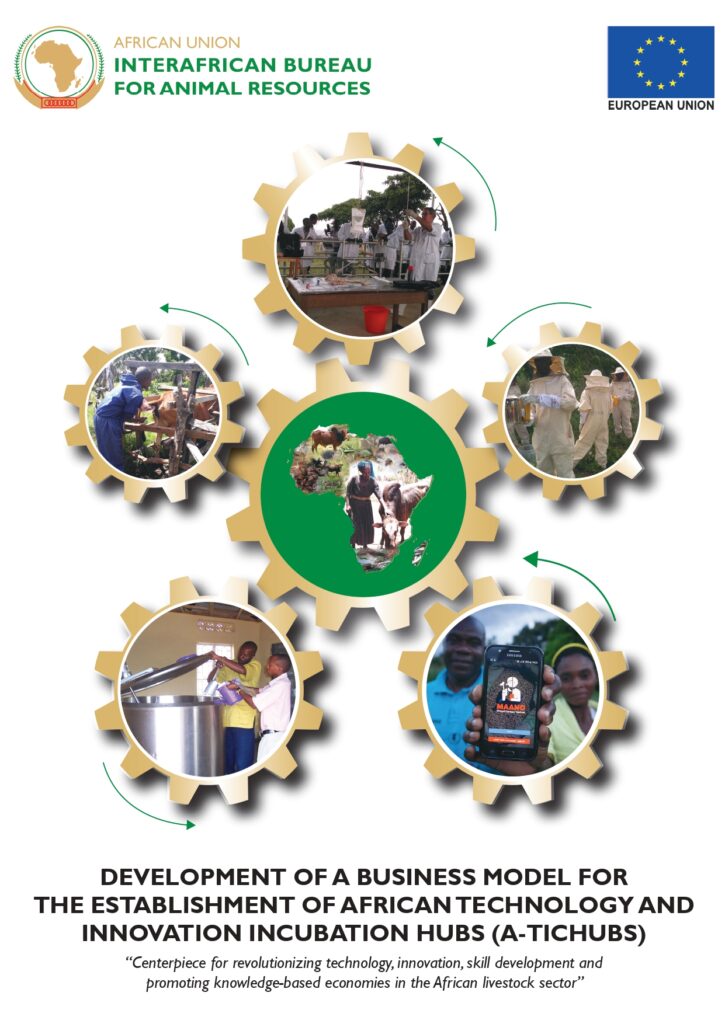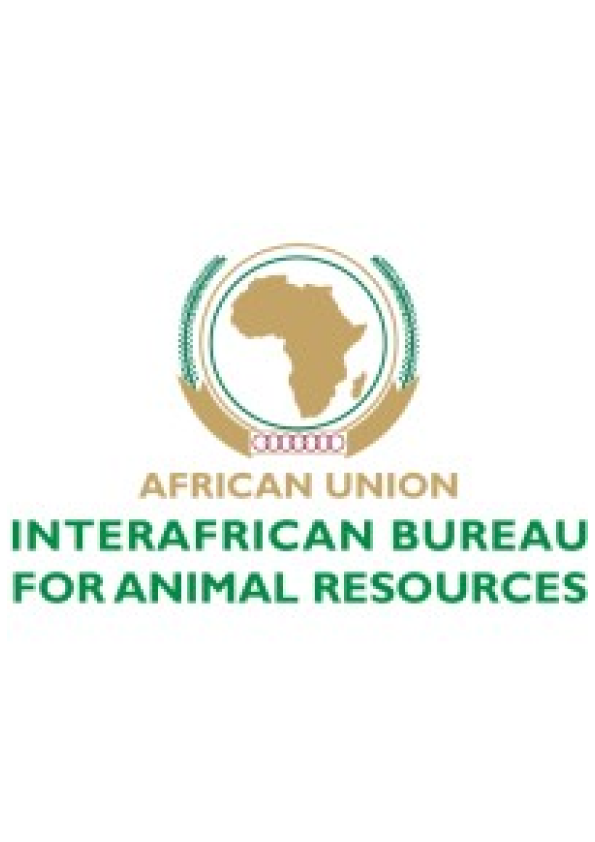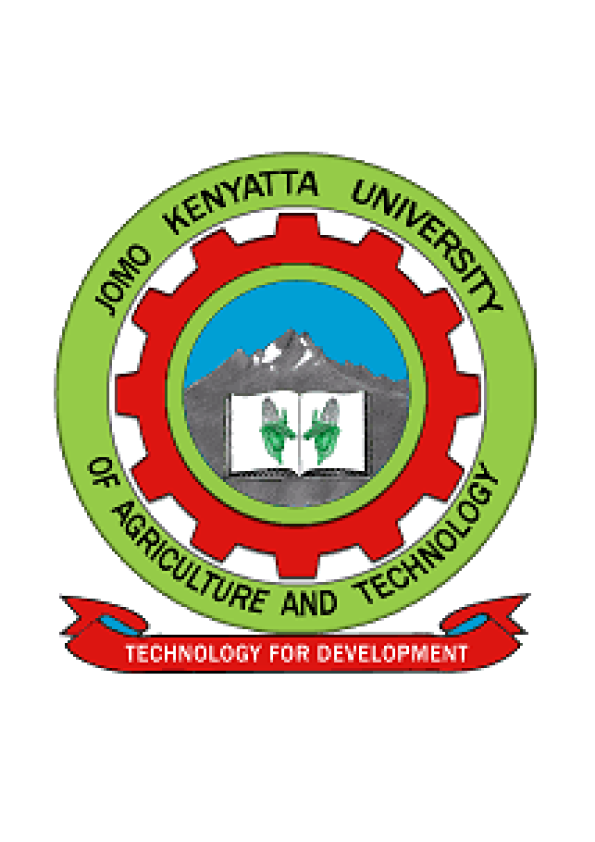
DEVELOPMENT OF A BUSINESS MODEL FOR THE ESTABLISHMENT OF AFRICAN TECHNOLOGY AND INNOVATION INCUBATION HUBS (A-TICHUBS)
“Centerpiece for revolutionizing technology, innovation, skill development and promoting knowledge-based economies in the African livestock sector”
This report is a result of consultancy work undertaken by Prof. Henry Bwisa for the AU-IBAR to develop a business model for the establishment of African Technology and Innovation Incubation Hubs (A-TiChubs). The A-TiChubs will focus on Animal Resource Value Chain (ARVC). The consultant was given terms of reference with objectives and deliverables.The main methodology was a writeshop which brought together selected experts and stakeholders to brainstorm and discuss key issues relating to the A-TICHUBS.
The main elements of this report are the results of the objectives and deliverables of the consultancy. These are:
- Outline of a technology and innovation ecosystem for the A-TICHUBS
- Selected key partners and stakeholders with strategies to engage them
- Guiding principles on functionality and administration of the A-TiChubs
- Template of criteria for identification of innovative start-ups
- Step-wise strategic options to guide commercialization and skill transfer of novel technologies for the livestock sector
- Business Model for the A-TiChubs
Link to the research: The A-TiChubs will focus on Animal Resource Value Chain (ARVC)

Private veterinary practice in pastoralist areas of eastern Africa
Report of a regional workshop held in Nakuru, Kenya, 6–9 August 2003
The African Union/Interafrican Bureau for Animal Resources (AU/IBAR) is the catalytic and policy organ of the African Union responsible for animal resources in Africa. It works closely with governments, international agencies, non-governmental organisations (NGOs) and donors in all aspects of livestock health and production. In addition to implementing continent-wide programmes, AU/IBAR plays a crucial role in leading policy debate and encouraging policy harmonisation.
During the Pan African Rinderpest Campaign (PARC), which ran from 1986 to 1999, AU/IBAR was active in promoting veterinary privatisation in Africa. At that time, the idea of privatisation was relatively new and it took a while to persuade governments that reform of veterinary services made sense. Some of the national PARC programmes included a privatisation component and activities tended to focus on the so-called ‘high potential’ areas. In some countries, the importation of veterinary drugs was liberalised and, with support from PARC, private practices began to emerge in urban and peri-urban areas. However, the main success of PARC regarding privatisation was that governments began to realise that policy and legislative changes were required to support the emerging private sector
Link to the research: Private veterinary practice in pastoralist areas of eastern Africa

Professor
Area of Specialization: Ph.D. Enterprise Development
Professor Bwisa is biased towards applied and action-oriented researches whose results are readily
consumed. To this end he has serialized his researches in local dailies: The Standard and the Nation. He currently runs a tiktok platform on which he publishes results of his mini researches. He has also
published seven books on entrepreneurship.
Link: Jomo Kenyatta University Of Agriculture And Technology
